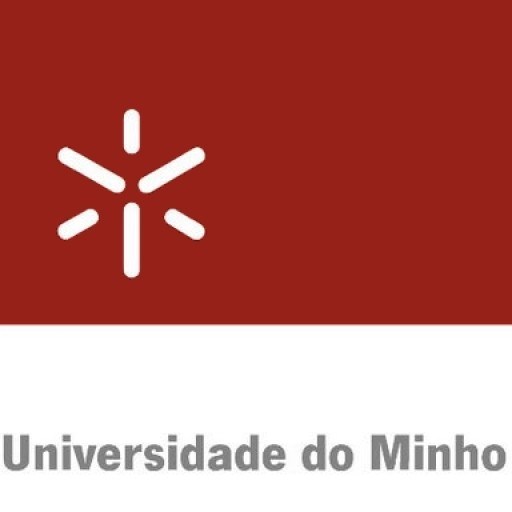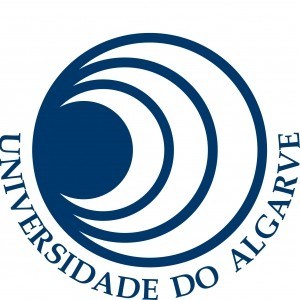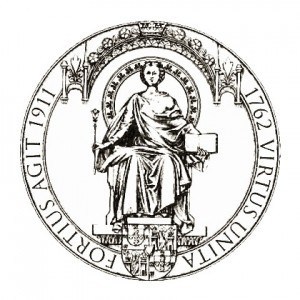Photos of university / #universidade_do_minho
Advertisement
Motivation and Objectives
The building industry and tourism represents about 15-20% of the GNP in Europe. As the built environment ages, conservation of existing buildings and infrastructure is receiving more and more attention, reaching an average value of 1/3 of the market in Europe. The SAHC programme will address the issue of existing buildings, but with a focus on buildings with cultural value. Being monuments and historical centres main attractors for tourism, their conservation is not only a societal demand but also an economical one.
Europe is a world leader in the generation of knowledge, methodology and technology applicable to the conservation and restoration of the architectural heritage. The large investment made during the last years lead to significant advances in experimental and numerical techniques applied to the conservation of architectural heritage structures.
The objective of SAHC is to offer an advanced education programme on the engineering of conservation of structures, with a focus on architectural heritage. The Master combines the diversity of expertise at leading European universities in the field, offering education oriented to a multidisciplinary understanding of structural conservation through the involvement of experts from complementary fields (engineers, architects, materials scientists and others). Students face top level structural analysis knowledge in a research oriented environment, with close cooperation with the industry and a focus on problem solving.
The Master course will provide a cross-disciplinary education comprising engineering oriented issues (experimental techniques, computer modelling, structural analysis, seismic behaviour and structural dynamics, repairing and strengthening techniques, surveying, monitoring, etc.) with more general methodological or philosophical concepts (history of construction and restoration, principles and methodology of conservation, building rehabilitation, etc.).
The main focus of this training is the application of scientific principles in analysis, innovation and practice of conservation of monuments and historical constructions worldwide. The course will combine the very recent advances in research and development with activities oriented to practical applications. In turn, the course will pay significant attention to the regional differences shown by the architectural heritage and historical construction techniques within Europe or at World scale.
Programme Structure and Content
The SAHC programme has duration of one academic year (60 ECTS credits) and is held on a rotating basis among partners. Coursework (September - March) is concentrated in two countries each year and dissertation work (April - July) is divided by all involved institutions. For 2013/2014 and odd years, the coursework will be held in Portugal and Czech Republic. For 2014/2015 and even years, the coursework will be held in Italy and Spain. Dissertation can be performed in any of the involved institutions.
It is expected that students carry out the entire coursework in one location and the dissertation in another location. Mobility track is based on students preferences taking into account adequate balance between different institutions. The curriculum is exactly the same, no matter the student mobility track.
Changes of mobility path from the one defined by the Consortium and informed to the candidate will not be accepted, unless of exceptional reasons. Any student requesting a change in path must provide a substantiated request before the starting of the program. After the starting of the program no changes will be allowed.
The study programme is composed of eight units, with six sequential units, one unit project-based and one dissertation. The units are as follows:
* SA1: History of Construction and of Conservation
* SA2: Structural Analysis Techniques
* SA3: Seismic Behaviour and Structural Dynamics
* SA4: Inspection and Diagnosis
* SA5: Repairing and Strengthening Techniques
* SA6: Restoration and Conservation of Materials
* SA7: Integrated Project
* SA8: Dissertation
Units SA1 to SA6 are arranged as a mix of theory and application, in a context of a project-led education. Lectures are held from 9:30h to 12:30h and individual/group work is carried out at University from 14:00h to 19:00h.
The Integrated Project (SA7) is s truly project-based course, includes a mini group project to solve a real engineering problem, with site visits.
The Dissertation (SA8) aims at developing research and/or professional competences in the field of conservation and restoration of architectural heritage structures.
Degree Awarded
The degree awarded is a Master's degree, provided as a double degree from the institutions involved. The degree awarding institution and Erasmus Mundus degree awarded are as follows:
* · University of Minho, Portugal: Mestrado em Análise Estrutural de Monumentos e Construções Históricas
* · Czech Technical University in Prague, Czech Republic: Advanced Masters in Structural Analysis of Monuments and Historical Constructions
* · University of Padova, Italy: Master in Analisi Strutturale dei Monumenti e dell'Edilizia Storica
* · Technical University of Catalonia, Spain: Advanced Masters in Structural Analysis of Monuments and Historical Constructions
Three types of scholarships are made available.
Category A scholarships, currently of 24,000 Euro (full coverage of costs), are available to third-country applicants applying within the 1st Call. These Erasmus Mundus scholarships are directly sponsored by the European Commission, under the scope of Erasmus Mundus Programme.
The European Commission makes available additional Category A scholarships for applicants from:
* · Western Balkans and Turkey (Albania, Bosnia-Herzegovina, the former Yugoslav Republic of Macedonia, Montenegro, Serbia and Kosovo, and Turkey)
* · Southern Neighbourhood Countries (Algeria, Egypt, Israel, Jordan, Lebanon, Libya, Morocco, Syria, Tunisia, Occupied Palestinian Territory)
Category B scholarships, currently of 10,000 Euro (with a tuition fee waiver of 50%), are available to students not eligible to the Category A scholarship applying within the 1st Call as well. These Erasmus Mundus scholarships are directly sponsored by the European Commission, under the scope of Erasmus Mundus Programme.
Please note that each student is allowed to submit a maximum of three applications for Erasmus Mundus scholarships at different Erasmus Mundus Masters Courses.
Also, a number of Consortium Scholarships are planned for students from any geographical origin applying within the 1st Call and 2nd Call. These scholarships are financed by the SAHC Consortium itself and are open to students of any nationality. However, non-third-country nationals will have a higher chance of being selected. These Consortium Scholarships are divided as follows:
* · One to two scholarships of 13,000 Euro
* · Eight scholarships of 6,000 Euro
* · Ten scholarships of 3,500 Euro
In addition to Consortium Scholarships, European Union students (not going to Czech Technical University in Prague or Technical University of Catalonia for dissertation) might be eligible for a possible LLP/Erasmus mobility grant, depending on the number of grants available.
Any selected applicant must bear in mind that, if selected to a scholarship, the confirmation of acceptance of the scholarship by the student implies automatically that other interested applicants will not receive a scholarship, as the number of applicants is larger than the number of grants. Therefore, the SAHC Consortium will request to all students selected for a scholarship the payment of a deposit of 250 Euro to confirm their acceptance of the scholarship and enrolment in the Master Course. This deposit will be returned to students only if they register at the University. The only purpose of this measure is to avoid filling up the MSc places with students that will not finally participate and that will compromise the enrolment of other interested students.
Third-country nationals eligible for an Erasmus Mundus Category A scholarship are nationals coming from all countries other than:
* · the 28 EU Member States
* · the EEA-EFTA states (Iceland, Liechtenstein and Norway)
who are not residents of any of the above countries, and who have not carried out their main activities (studies, work, etc.) for more than a total of 12 months over the last five years in any of the above countries.
European students and third-country students non-eligible for a Erasmus Mundus Category A scholarship are considered eligible for a Erasmus Mundus Category B scholarship.


